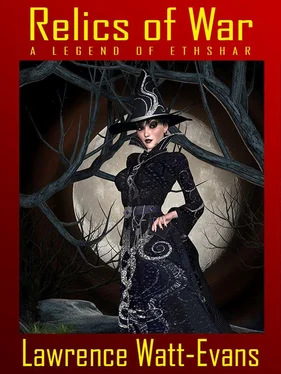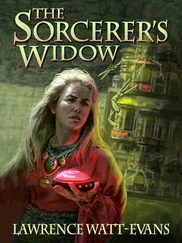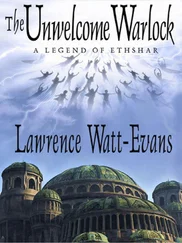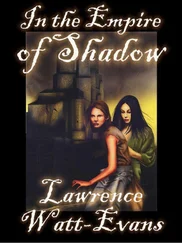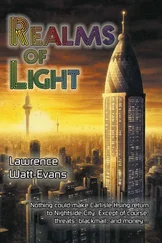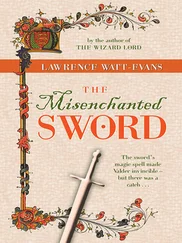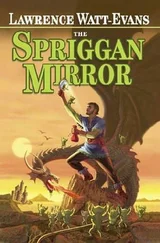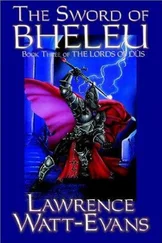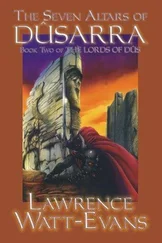Lawrence Watt-Evans - Relics of War
Здесь есть возможность читать онлайн «Lawrence Watt-Evans - Relics of War» весь текст электронной книги совершенно бесплатно (целиком полную версию без сокращений). В некоторых случаях можно слушать аудио, скачать через торрент в формате fb2 и присутствует краткое содержание. Год выпуска: 2014, ISBN: 2014, Издательство: Wildside Press LLC, Жанр: Фэнтези, на английском языке. Описание произведения, (предисловие) а так же отзывы посетителей доступны на портале библиотеки ЛибКат.
- Название:Relics of War
- Автор:
- Издательство:Wildside Press LLC
- Жанр:
- Год:2014
- ISBN:9781479404650
- Рейтинг книги:4 / 5. Голосов: 1
-
Избранное:Добавить в избранное
- Отзывы:
-
Ваша оценка:
- 80
- 1
- 2
- 3
- 4
- 5
Relics of War: краткое содержание, описание и аннотация
Предлагаем к чтению аннотацию, описание, краткое содержание или предисловие (зависит от того, что написал сам автор книги «Relics of War»). Если вы не нашли необходимую информацию о книге — напишите в комментариях, мы постараемся отыскать её.
Relics of War — читать онлайн бесплатно полную книгу (весь текст) целиком
Ниже представлен текст книги, разбитый по страницам. Система сохранения места последней прочитанной страницы, позволяет с удобством читать онлайн бесплатно книгу «Relics of War», без необходимости каждый раз заново искать на чём Вы остановились. Поставьте закладку, и сможете в любой момент перейти на страницу, на которой закончили чтение.
Интервал:
Закладка:
But if Tesk was a Northerner, then he was evil, wasn’t he? The entire Northern Empire had been evil-that was why Old Ethshar had fought against it for a thousand years, and why the gods finally destroyed it. That was why killing all the Northerners had been a good thing to do, when killing anyone else was a horrible crime-Northerners were evil by their very nature.
Tesk didn’t seem evil.
But appearances could be deceiving; Garander knew that.
And there were exceptions to every rule; Garander knew that , too. Maybe Tesk really was a Northerner, but still wasn’t evil; maybe that was why the gods had spared him when they destroyed the Empire. Maybe he was an exception.
Or maybe not. Maybe Tesk really was a demon-worshipping monster. And Garander’s little sister had been meeting him in the woods and chatting with him.
But if he was a Northerner, then he must have been living out there in the wilderness for twenty years , ever since the war ended. Thinking about Tesk’s appearance, Garander judged him to be in his thirties, which would mean he had been a child when the war ended-but then why did he have clothes that fit him as an adult?
Maybe he was older than he looked, or maybe he had salvaged the clothes somewhere later. A more important question was what the things he carried on his back were.
Ishta had found a Northern military talisman in the woods where Tesk lived. Maybe he wasn’t just a Northerner; maybe he was a Northern sorcerer . Maybe that had been his talisman. Maybe those things on his back were all sorcery, and his magic kept him young.
That was a frightening thought.
Garander wondered whether he should tell someone about Tesk. He had promised not to, but if Tesk was a Northern sorcerer …
And if he was a harmless halfwit who had wandered off from a farm or camp, as Ishta thought, then what? In that case, telling others wouldn’t accomplish anything except angering both Ishta and Tesk.
Or what if he really was a squirrel or a snake some passing wizard had enchanted in the waning days of the Great War? What good would it do to tell anyone?
Destroying Tesk’s privacy and ruining his own relationship with his sister before he was sure that Tesk was dangerous did not appeal to Garander. He decided that he needed to find out more about Tesk, and more about Northerners, and see how well they matched up. Having reached this decision he tried to get to sleep, with only intermittent success.
At breakfast the following morning Garander was so obviously not at his best that his mother asked if he was feeling well.
“It’s nothing,” Garander mumbled.
Shella considered this, then turned away. Grondar eyed his son for a moment, then continued eating.
A moment later Garander asked, “Father? During the war, did you ever meet any Northerners?”
“ Meet any? No. How could I meet any?”
“I thought there might have been prisoners you spoke to.”
Grondar shook his head. “We never took any prisoners.”
“Did you ever see any Northerners, then?”
Grondar snorted. “More than I wanted to.”
“You did?”
“Of course. Mostly at a distance, though-I didn’t see much close combat, thank the gods!”
“So you didn’t get a good look at them?”
“Not when they were alive. I helped strip and burn some of the bodies a couple of times, and that certainly let me see more of them than I wanted.”
“So they really were human?”
“Oh, is that what this is about? Yes, they were really human. Once the uniforms were off, you couldn’t tell a dead Northerner from a dead Ethsharite.”
Garander nodded.
“You were wondering how ordinary people could serve an evil empire?”
“Well, that,” Garander said. “And I heard stories in Varag that made me wonder. One of the soldiers there said that Northerners didn’t move like ordinary people-he said they were faster than we are, and their movements were…funny. Really smooth and graceful.”
His father turned up an empty palm. “The ordinary Northerners were just people, and they moved like anybody else. But according to the stories, shatra moved the way that soldier said.” Grondar shuddered. “I never saw any shatra , thank the gods!”
“What are shatra ?” Ishta asked. Garander had not realized she was listening; he threw her a nervous glance, wondering whether she had realized why he was asking about Northerners.
Something about the word “ shatra ” was troubling him, but he was unsure what. He had heard it before, in stories about the war, but that wasn’t it…
“ Shatra were half man, half demon,” Grondar told his younger daughter. “According to what our magicians told us, it took a demonologist and a sorcerer working together to turn a man into one, and no one on our side could do it. Shatra were stronger and faster than humans, and they could move so silently that no one could hear them coming; there were stories about sentries who turned around and found shatra had come up right beside them, or behind them, and they hadn’t heard a thing. The stories said that shatra were inhumanly efficient, that they never wasted any motion, and could hold so still that they blended in with the background. They didn’t have any scent-watchdogs couldn’t smell them-and they could see in the dark. They dressed all in black, and they were all sorcerers, carrying dozens of powerful talismans, including a big wand that was some kind of magical weapon that could spit fire.”
Garander listened to this description with mounting horror.
“I never saw one myself,” Grondar continued. “I just heard stories. But they were definitely real, because we had orders about what to do if we saw one. We weren’t supposed to try to fight it, even if it was just one of them against our entire regiment; our orders were to retreat and call for magicians and dragons to tackle it. One shatra was a match for at least a hundred Ethsharitic soldiers.”
Garander looked at Ishta, who was staring at their father, fascinated.
This was horrible, even worse than Garander had feared. It sounded as if Ishta’s friend in the forest was not just a Northerner, or even a Northern sorcerer, but a half-demon shatra . In fact, Garander realized what had been troubling him about the very word-hadn’t it been a part of Tesk’s name ? Right in the middle of that string of syllables? That really didn’t leave much room for doubt.
Surely, Garander thought, there must be some sort of mitigating element that would make this less of a disaster! “If they were so dangerous,” he asked, “then how did we win the war?”
“Because there were only a few of them at any one time,” Grondar replied. “Maybe a few hundred, at most. Maybe only a few dozen. For some reason the Northerners couldn’t make very many of them.” He turned up an empty palm. “Maybe the demons they used to make them didn’t like it, or maybe there were only a few of the right kind of demon available. Besides, they weren’t impossible to kill; a dragon had a pretty good chance against a shatra , at least a flying dragon, and a good wizard could usually find a spell that would get through even a shatra ’s defenses. There was even supposed to be at least one magic sword powerful enough that an ordinary soldier could kill a shatra with it, though I sure wouldn’t want to be the one to try it. A shatra might do a lot of damage, but sooner or later they all got stopped somehow. If they hadn’t, we wouldn’t have won the war!”
“I suppose the last ones were all killed by the gods,” Garander said. “I mean, at the end of the war, didn’t the gods kill all the demons?”
Читать дальшеИнтервал:
Закладка:
Похожие книги на «Relics of War»
Представляем Вашему вниманию похожие книги на «Relics of War» списком для выбора. Мы отобрали схожую по названию и смыслу литературу в надежде предоставить читателям больше вариантов отыскать новые, интересные, ещё непрочитанные произведения.
Обсуждение, отзывы о книге «Relics of War» и просто собственные мнения читателей. Оставьте ваши комментарии, напишите, что Вы думаете о произведении, его смысле или главных героях. Укажите что конкретно понравилось, а что нет, и почему Вы так считаете.
